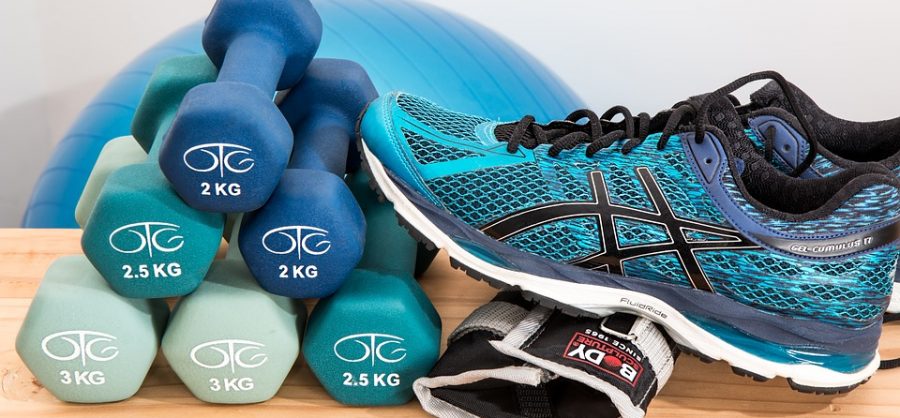Gym Class Anti-Heroes
Bullying campaigns are launched by the school to fight the elitism amongst students, to fight the underlying or sometimes open hatred and bigotry. While the campaigns themselves leave much to be desired for, there’s something else, something big, that the school doesn’t seem to understand, and that’s that the biggest bullying incentives and fights to get to the top of the barrel are quite often school-run: homecoming court, varsity teams, clubs, etc. The list goes on. And while some competition can be healthy, and can encourage students to work their hardest, there’s a huge difference between feeling pushed to do your best and feeling sick to your stomach from nerves and anxiety.
Everyone dreads it. There’s a universal anxiety, unless, of course, you’re good at it. And if you’re good at it, then truly, good for you. But we have to take into consideration the other side. It’s good to be good at something; it’s good to be at the top of the barrel. But being at the top means that there are others that you’re crushing, and they are important, just like you are. Personal ability is great. A mass epidemic of elitism that helps some and degrades others is anything but. And almost nothing offers a better place for self-hatred and peer pressure and bullying: the mile.
People count down the days until they’ll never have to do it again. They walk into gym and they feel an overwhelming sense of terror, and they’ll leave somehow feeling even worse. Maybe a few people get a confidence boost from it. Maybe. But more people know the horrible feeling of being lapped, when your face turns red from embarrassment, and you feel like you’re just not good enough.
Times are loudly called out, broadcast for everyone to hear. It’s a tattoo of shame to wear and copy down on blue sheets. When you see a couple kids start to get their things and leave, when you’ve still got two laps to go, it reminds you who’s “better” and it’s apparently not you.
And the mental effects are horrible, but when coupled with physical effects? Anxiety leads to nausea. Excuses are simply not to be heard. No note? Then you’ll run. Who cares if you were in the hospital the night before, who cares if you skipped lunch because of nerves and your stomach is pounding in time with your heartbeat. Who cares if halfway through the sixth consecutive lap of sprinting to keep up with the speeds of everyone else, you suddenly felt the edges of your vision go a little blurry? The answer is certainly not the school.
The locker rooms afterwards are clogged, whether it’s time to change or not, with everyone making sure that no one else is throwing up or crying their eyes out over their time. And sometimes, even worse, they’re not clogged, because no one can even will themselves to care anymore. There’s not enough water in the world to get rid of the lump in your throat, and a walk afterwards around the track doesn’t sweat out the shame. Are their cheeks red from running, or from an anxiety attack? Are they shaking from adrenaline, or the urge to cry until they can’t get up anymore?
And this is all for what? This is the worst question, because it just doesn’t have an answer. Health is not a set standard, and running past the point where you simply can’t anymore is not exactly a golden rule of physical ability. A mile is nothing for some, and a horrific time for others. There’s a difference between good physical exertion and pushing too hard just to get a number on a sheet that won’t even affect your future. And it truly, truly won’t. Harvard won’t check your mile time to make sure you can get into their medical programs, MIT won’t, when determining if you can code, and even if you’re wanted for a sports scholarship, they’ll look at your actual sport competitions. They’ll look at teamwork and coach recommendations. The mile is absolutely worthless.
And yet we just keep doing it.
Your donation will support the student journalists of Chelsea High School. Your contribution will allow us to purchase equipment, cover our annual website hosting costs, and write more stories for you to read!

Matty's the “Cool Editor” and has been with the paper since her freshman year. She’s a senior who is too funny for her own good and spends almost...






Charles Korner • Dec 26, 2017 at 8:53 pm
I understand the humiliating and potentially harmful effects of tests like the mile. But I have to point out, what about the kids who have the same response to academic competition? Who are called on and can feel their face turning red and know everyone else can tell too. Because yet again they don’t know the answer and they’ll do anything to get out of the he spotlight. What about the kids who cover up their test scores when they get passed back and when asked, just say they didn’t look? Academic classes can be just as excruciating and humiliating for many people, and yet we don’t talk about cutting them out of the curriculum. Physical education is already neglected in schools, in all honesty, we should probably have to take an hour of gym every year, every day. It’s not fun for many, but why should I be favored because my strength lies in academic pursuits when physical work is just as, if not more vital in the long run? Thirty years from now, you’re right, our mile times probably won’t affect us. But neither will our English grades. The whole system needs to be revamped, but in the meantime, while I agree humiliation and potential harassment because of performance should be taken seriously, I don’t think we should scale down physical education.